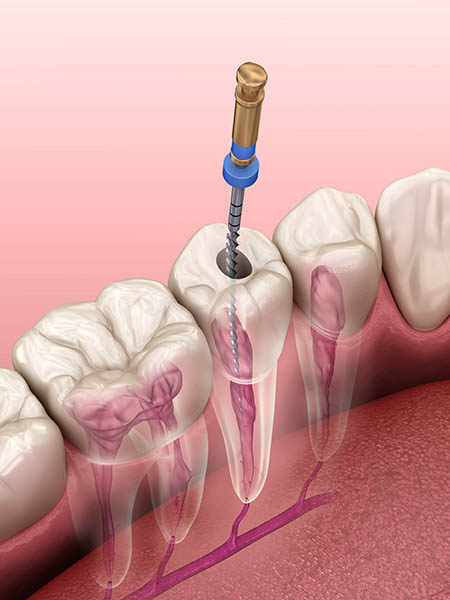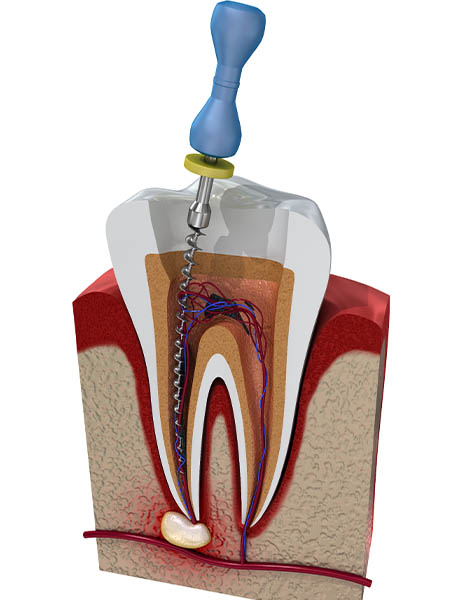Dr Irene Sim graduated from the National University of Singapore, Faculty of Dentistry, with her Bachelor of Dental Surgery in 2006. She practised at various NHG polyclinics for a few years before her passion for endodontics led her to pursue further specialist training.
Dr Irene Sim was awarded a sponsorship from SingHealth and received her specialist training at both the National Dental Centre Singapore (NDCS) and the National University of Singapore (NUS).
She graduated with a Master in Dental Surgery in Endodontics from the National University of Singapore in 2011 and was conferred Membership in Endodontics by the Royal College of Surgeons, Edinburgh, in the same year. Dr Irene Sim is a board-certified Specialist in Endodontics with the Singapore Dental Council and a Fellow of the Academy of Medicine, Singapore (FAMS). She is also a member of the Society of Endodontists Singapore and the Singapore Dental Association.
Prior to entering private practice, Dr Irene Sim practised at the National Dental Centre Singapore (NDCS), where she served as a member of the infection control committee and a supervisor to dental officers and oral hygiene therapists. During her years of service at NDCS, Dr Irene Sim completed the SingHealth Leadership training programme and received multiple awards, including the SingHealth Young! Publish Award in 2016 and the ORH ACP Young Clinician Publication Award in 2016 for her research on cracked teeth. She also received the Singapore Health Quality Service Awards in recognition of her outstanding care for patients.
Lecturer Experience
Dr Irene Sim has a passion for teaching and was a lecturer for the endodontic module in the Diploma in Hygiene and Therapy programme at Nanyang Polytechnic from 2013 to 2015. She is currently a part-time instructor at the Faculty of Dentistry, NUS, where she teaches undergraduate students. Dr Irene Sim is also a key opinion leader for Dentsply and a certified VDW teacher and trainer, delivering lectures and workshops both locally and internationally. She has been invited to speak in countries such as Italy, Taiwan, the Philippines, and Malaysia, among others.
Specialities & Services Provided
Dr Irene Sim has a talent for helping nervous patients feel at ease. It is not unusual for patients to fall asleep in her chair during root canal treatment. She is able to manage all endodontic (root canal) conditions, both surgical and non-surgical.
Technology Used
Dr Irene Sim believes in innovative technology and utilises the latest Zeiss Microscope to enhance the accuracy and efficiency of her procedures. This microscope features augmented visualisation modes, providing illumination and clarity in areas that are otherwise challenging to view. This enables Dr Irene Sim to deliver positive outcomes, both functionally and aesthetically.
Place of Consultation
Dr Irene Sim is available for consultation at Nuffield Dental Jewel (Orchard). Treatment for nervous patients can be carried out under Intravenous Sedation at these clinics or under General Anaesthesia.
Additional Areas of Interest
Dr Irene Sim has a particular interest in dental traumatology, revascularisation, apexification, vital pulp therapy, non-vital bleaching, endodontic surgery, and the management of cracked teeth.
Articles by Dr Irene Sim
Publication in Journal of Endodontics: Decision Making for Retention of Endodontically Treated Posterior Cracked Teeth: A 5-year Follow-up Study. J Endod. 2016 Feb;42(2):225-9.
22 Jan 2022 - ZaoBao Newspaper; Dental Tips
31 Aug 2021 - Zaobao Newspaper; Oral Health
Nov 2019 – Canadian Times
Feb 2024 – Canadian Times
Speaking Experience/Media Coverage
Dr Irene Sim is a regular guest speaker on radio and CNA. She has also been featured on several newspaper interviews. Her speaking experience and media coverage include but are not limited to the following:
March 2023 -11th Borneo Dental Congress, Dental Pain Differentiation
14th Jan 2023 - Haleon Webinar; Dentine Hypersensitivity: Diagnosis and Management
20th May 2022 - VDW Global Opinion Leaders Forum; SIMply Sensitive? Or more to it than meets the eye?
19th May 2022- 113th PDA (Philippines Dental Association) Annual Convention and Scientific, Diagnosing Dentine Hypersensitivity
22 Jan 2022 - ZaoBao Newspaper; Dental Tips
13 Nov 2021 - GSK-SDA Webinar, Dentinal Hypersensitivity
31 Aug 2021 - Zaobao Newspaper; Oral Health
4 Aug 2021 - 96.3FM Radio Interview; DIY DentalTreatment
12 Jul 2021 - 95.8FM Radio Interview; Cracked teeth
16 Jan 2020 - CNA Radio Sharing
17 Aug 2019 - CNA-SDG Seminar; Cracked Tooth
19 Aug 2017 - CNA (Channel NewsAsia); Root Canal Treatment
2013, 2014, 2015 – Nanyang Polytechnic OHT students; Root Canal Treatment
1st July 2014 – CDSS Study Club, Revascularisation revisited
2012 – Restorative Dentistry Forum, Amelogenesis Imperfecta
12 Oct 2011 – Restorative Dentistry Forum, Revascularization: Does it work?
3 April 2010 - Straits Times Forum Compliment from patient for excellent patient care
Other
Dr Irene Sim is committed to giving back to society. She has volunteered with organisations such as the Tzu Chi International Medical Association, Kwong Wai Shiu Hospital, and Willing Hearts, among many others.
.png?width=2223&height=447&name=Background%20(4).png)

.svg)
.svg)
.svg)
.svg)

.png)

.jpg)

.svg)


.jpg)



.png)

.png)








